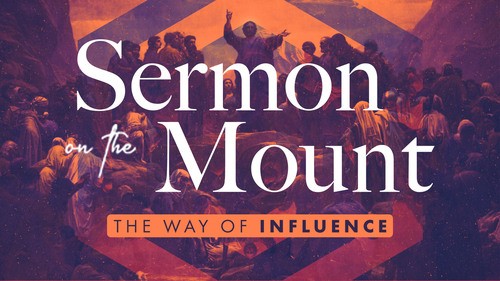Earthly Practice, Eternal Position (Day 5)

Earthly Practice, Eternal Position
"What you do here sets where you'll stand there."
Matthew 5:19 (ESV)
"Therefore whoever relaxes one of the least of these commandments and teaches others to do the same will be called least in the kingdom of heaven, but whoever does them and teaches them will be called great in the kingdom of heaven."
Devotional Thought
Jesus dropped a bombshell in the middle of His sermon that most Christians prefer to ignore: there will be degrees of greatness in the kingdom of heaven. This wasn't a casual comment—it was a deliberate teaching about eternal consequences for earthly choices. The Greek word Jesus used for "least" (elachistos) and "great" (megas) indicates a ranking system, a hierarchy of honor based on faithfulness to God's commands.
This challenges our modern preference for everyone being equal. We like to think that once we're "in" heaven, everyone gets the same experience, the same rewards, the same position. But Jesus clearly taught that how we live here determines where we stand there.
This challenges our modern preference for everyone being equal. We like to think that once we're "in" heaven, everyone gets the same experience, the same rewards, the same position. But Jesus clearly taught that how we live here determines where we stand there.
A Bit of History: Jewish Understanding of Rewards
First-century Jews understood this concept well. Their rabbis taught extensively about olam haba (the world to come) and the varying degrees of reward awaiting the righteous. They spoke of different levels in paradise, different crowns for different kinds of faithfulness, different capacities for experiencing God's glory based on earthly obedience.
This wasn't about earning salvation—that was understood to be God's gift. This was about earning reward within salvation. The Talmud records Rabbi Akiva's teaching: "Better is one hour of repentance and good works in this world than the whole life of the world to come; and better is one hour of blissfulness in the world to come than the whole life of this world."
The Jews understood something we've largely forgotten: earth is the training ground for eternity, and how we train matters for how we'll reign.
This wasn't about earning salvation—that was understood to be God's gift. This was about earning reward within salvation. The Talmud records Rabbi Akiva's teaching: "Better is one hour of repentance and good works in this world than the whole life of the world to come; and better is one hour of blissfulness in the world to come than the whole life of this world."
The Jews understood something we've largely forgotten: earth is the training ground for eternity, and how we train matters for how we'll reign.
The Present Opportunity
Here's what should take our breath away: there are some opportunities for pleasing God that we will only have while present in these bodies. When we get to heaven, there will be no more need for faith—we'll see Him face to face. There will be no more need for endurance through trials—there will be no more trials. There will be no more need for courage in witnessing—everyone there will already know Him.
Now, while we are present in these bodies, is our only opportunity in all eternity to please God through faith, hope, and love demonstrated in the midst of difficulty, uncertainty, and opposition.
Think about what this means: every act of forgiveness when you'd rather hold a grudge, every choice to trust God when circumstances suggest otherwise, every decision to speak truth when lies would be easier—these opportunities will never come again. Eternity is forever, but the training ground is brief.
Now, while we are present in these bodies, is our only opportunity in all eternity to please God through faith, hope, and love demonstrated in the midst of difficulty, uncertainty, and opposition.
Think about what this means: every act of forgiveness when you'd rather hold a grudge, every choice to trust God when circumstances suggest otherwise, every decision to speak truth when lies would be easier—these opportunities will never come again. Eternity is forever, but the training ground is brief.
The Judgment Seat Reality
Paul makes this even more explicit in 2 Corinthians 5:10: "We must all appear before the judgment seat of Christ, so that each one may receive what is due for what he has done in the body, whether good or evil." This isn't about salvation—that's settled by faith alone. This is about service and reward.
The imagery Paul uses in 1 Corinthians 3 is particularly striking: our works will be tested by fire. Some will survive (gold, silver, precious stones), others will be consumed (wood, hay, straw). The person whose works are burned up "will suffer loss, though he himself will be saved, but only as through fire."
Imagine standing before Christ and watching a lifetime of spiritual activity go up in smoke because it was built on wrong motives, selfish ambition, or human approval rather than God's glory. Imagine being saved but having nothing to offer back to the One who gave everything for you.
The imagery Paul uses in 1 Corinthians 3 is particularly striking: our works will be tested by fire. Some will survive (gold, silver, precious stones), others will be consumed (wood, hay, straw). The person whose works are burned up "will suffer loss, though he himself will be saved, but only as through fire."
Imagine standing before Christ and watching a lifetime of spiritual activity go up in smoke because it was built on wrong motives, selfish ambition, or human approval rather than God's glory. Imagine being saved but having nothing to offer back to the One who gave everything for you.
The Dangerous Question
This raises an uncomfortable question: Are you content to be like Lot—righteous but essentially useless? Lot was declared righteous by God (2 Peter 2:7), but his life was marked by compromise, worldliness, and spiritual ineffectiveness. He made it to heaven, but barely, "as through fire."
Or consider the parable of the talents (Matthew 25:14-30). The servants who invested their master's resources were rewarded with greater responsibility and authority. But the servant who buried his talent—who was "safe" but unproductive—was called wicked and lazy. His reward? Outer darkness, not because he wasn't saved, but because he was unfaithful with what he'd been given.
Or consider the parable of the talents (Matthew 25:14-30). The servants who invested their master's resources were rewarded with greater responsibility and authority. But the servant who buried his talent—who was "safe" but unproductive—was called wicked and lazy. His reward? Outer darkness, not because he wasn't saved, but because he was unfaithful with what he'd been given.
The Eternal Perspective
This isn't meant to create anxiety but urgency. God isn't keeping score to condemn you—Christ already took that condemnation. God is keeping score to reward you, to honor your faithfulness, to celebrate your choices to trust Him when it was difficult.
Every time you choose obedience over comfort, truth over acceptance, God's will over your preferences, you're building with materials that will survive the fire. Every act of love, every moment of faithfulness, every choice to honor God's commands—especially when no one is watching—is adding to an eternal weight of glory that will far exceed any temporary sacrifice.
The goal isn't to earn God's love—you already have that through Christ. The goal is to maximize your capacity to enjoy and reflect that love for eternity.
Every time you choose obedience over comfort, truth over acceptance, God's will over your preferences, you're building with materials that will survive the fire. Every act of love, every moment of faithfulness, every choice to honor God's commands—especially when no one is watching—is adding to an eternal weight of glory that will far exceed any temporary sacrifice.
The goal isn't to earn God's love—you already have that through Christ. The goal is to maximize your capacity to enjoy and reflect that love for eternity.
Application Questions
- Eternal Perspective vs. Temporal Focus: If you truly believed that your earthly choices determine your eternal position in God's kingdom, what decisions would you make differently today? What activities, relationships, or priorities would shift if you had an eternal perspective?
- Gold vs. Wood: Paul describes some works as eternal materials (gold, silver, precious stones) and others as temporary (wood, hay, straw). What criteria distinguish between these two categories? How can you evaluate whether your current spiritual activities will survive the fire of God's testing?
- Lot's Example: Lot was righteous but ineffective, saved but with little to show for his life. What areas of compromise, spiritual laziness, or "playing it safe" might be moving you toward a "Lot-like" existence rather than faithful stewardship of God's gifts?
Today's Challenge
Identify one area where you've been "playing it safe" spiritually—avoiding risk, compromise, or missed opportunities to honor God.
Ask yourself: "If I knew this choice would affect my eternal position and capacity to glorify God forever, how would I approach it differently?"
Then take one concrete step toward faithful stewardship in that area.
Ask yourself: "If I knew this choice would affect my eternal position and capacity to glorify God forever, how would I approach it differently?"
Then take one concrete step toward faithful stewardship in that area.
Today's Prayer
"Lord Jesus, thank You that my salvation is secure through Your finished work, but help me not to be content with merely 'getting to heaven.' Give me an eternal perspective that values Your approval over human comfort, Your glory over temporary pleasure. Show me the difference between building with materials that will survive the fire and those that will be consumed. Help me see every choice, every opportunity, every trial as a chance to build something that will last for eternity. Free me from the desire to 'play it safe' spiritually when You've called me to faithful stewardship. Let me not be like Lot—righteous but ineffective—but like the faithful servants who invested their master's resources wisely. May my earthly practice prepare me for eternal position in Your kingdom. In Your rewarding name, Amen."
Posted in fulfilled

No Comments